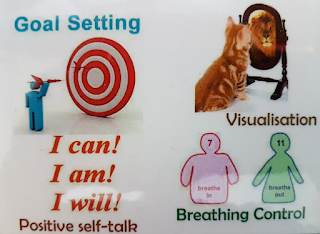A blog summary of my notes...
First Session:
Aim:
- Preventing behaviours that challenge and if necessary de-escalating the situation
- How to stop behaviours from happening
- How to support child without putting more demand on them
Intro:
- Understand what is happening in the brain when it’s under stress…
- When seeing difficult behaviours, think what might be happening in the brain
Summary:
- When the brain is under stress Adrenaline and Cortisol are produced
- These shut down the layers of brain activity starting with logic and self-control
- Calm the situation - don’t inflame by punitive approaches
- BUILD behaviours by ignoring, figuring out what the driver is, replacing with positive behaviours, praise and encouragement, frequent positive restatement, reminders and redirection
Module 1: Understanding behaviour - Why? How? What?
Remember the can of coke ‘analogy’ - shake it and it explode...
- Being mindful of the factors that occur in a child's life that is baggage when they come to school
- If you want to be supportive, shift your perspective by not judging and instead offer support to build that relationship
What can YOU influence?:
- The only thing we can control is what we do, think and believe…
- … and what we do, think and believe can influence the outcome to increase the likelihood of de-escalation
Understand, then manage your actions:
Stress Response: Psychological effects…
Module 2: Encouraging ready-to-learn behaviour
Establishing a learning focused culture by exploring strategies that prevent and de-escalate challenging situation through:
- Creating supportive learning environments
- Teaching for positive behaviour - revisiting the brain and stress
- Strengthening positive relationships
- Exploring strategies that support emotional regulation
- Exploring communication - what we say and how we say it
- Exploring strategies that prevent and de-escalate challenging situations
Exploring communications - what we say and how we say it:
- Create win-win scenarios with two winners
- Talk to students with compassion and respect
- Address private or sensitive issues in private
- Take the student seriously and address issues
- Give focused attention
- Avoid humour like sarcasm, inappropriate remarks or mocking - be polite
Summary:
- De-escalation refers to a set of verbal and non-verbal responses which, if used selectively and appropriately, reduces the level of a student’s anxiety or anger to prevent loss of control
- Research tells us that knowing the student, building trusting relationships and using effective de-escalation techniques can all minimise the likelihood of restraint
Module 3: Responding Safely
Intro:
- Often behaviour is done for an audience
- How do your actions escalate or de-escalate the situation?
- Whatever goes bad, it will pass and things will get better
Responding Safely - Differential Responding:
(Note: when students are below ‘red line’, you will have trouble with bringing them back. A student that often go below this line would normally have a ‘safety plan’ - through SENCo / RTLB)
Strategies to maintain the 'Ready to Learn' state:
When the student is 'Out of Sorts' - Strategies to help the student return to Ready to Learn:
When behaviour is "Escalating' - Strategies to de-esclate and provide direction and maintain safety:
Strategies to maintain safety when a situation is 'Out of Control':
Strategies to help the student to 'Calm down', be safe and re-establish a trusting relationship:
Module 4: Reflection and Embedding
Conclusion...
- Maintain mana, walk away and determine next move
- Ensure students know what will be happening, as some struggle with change
~ "Relying on one-on-one chat alone is rarely effective. It may take many of these conversations - this is a process to teach young people how to think about their behaviour. At a neurological level, we now understand that we are creating new neural pathways in young brains and there is not quick fix that does this!"
(Thorsborne & Blood - 2013 pg. 42) ~




No comments:
Post a Comment